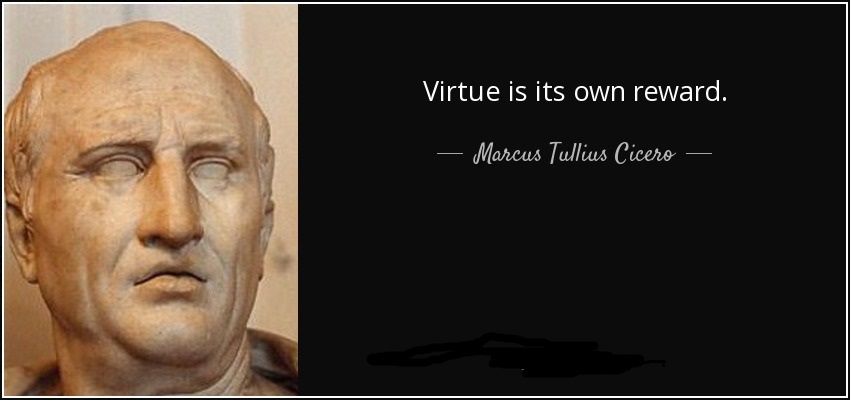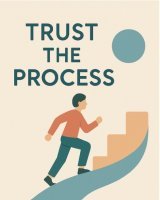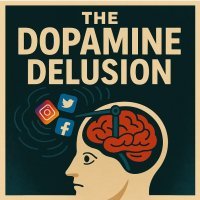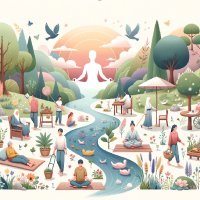The Meaning Of Life
The Meaning Of Life Is Entirely What You Choose It To Be

The Meaning Of Life And Choice
What is the meaning of life?
"It is a far, far better thing that I do, than I have ever done; it is a far, far better rest that I go to than I have ever known."
These are the final words of the dissolute, alcoholic lawyer Sydney Carton in Charles Dickens' "Tale Of Two Cities" as he take the place of the condemned husband of the woman he loves at the guillotine. In this final act of self-redemption he finds a meaning and a purpose for what he perceived to be a wasted life.
This is just a popular story with the typical Victorian love of melodrama and but it does touch on certain universal themes in the search for the meaning of life: altruism, self sacrifice, and a greater good.
But at the root this is a narrative about choice.
Sydney Carton made a decision - a conscious choice - to sacrifice his life to save the life of the husband of the woman he loved.
His found the meaning of life through the exercising of a choice.
This highlights the fundamental basis for finding the meaning of life:
The Meaning Of Life And Framing
Framing is about communication and how we create meaning in our communications - with others and within ourselves. It is also about how we define context, make associations, establish reference points and emotional touch points all designed and positioned to convey the sense and meaning of something - in this instance how things are and the meaning of life.
The Stoics had a good handle on this. In the The Stoic Challenge William Irvine noted that the
Stoics’ had an appreciation of a phenomenon
that has been rediscovered by modern psychologists who call it
the framing effect.
The Stoics realised that we have considerable flexibility in how we frame the situations we experience.
In the video below William Irvine discusses this point.
The broad context is about how you frame difficult experiences in life, but the theme of framing applies to everything you experience in life including your perspective on the meaning of life.
William Irvine on Framing - extract from Stoicism & Framing
The Meaning Of Life - The Stoic Practice of Virtue
Massimo Pigliucci (a present day philosopher who espouses Stoicism) has said that:
"...a key concept of Stoicism is that the chief good in life is the practice of virtue. And virtue is to be practiced not in order to make oneself look good, or to achieve a personal goal. It is to be practiced because it is good in itself, it is it’s own reward.
Virtue, that is, is a fundamentally atelic activity, and it keeps providing us with meaning all the way to the moment we die.
Moreover, while we may lose our partner, friends, and even our children, before that last moment comes, we do not lose the ability to practice virtue, no matter what.
That’s why the Stoics valued relationships and
friendship very much ...of course how you relate to your
partner, children, and friends (as well as anyone else, for that matter)
is precisely how you practice virtue."
Become an everyday hero in a present day millennial context
In Seven Paths to a Meaningful Life Professor Philip Zimbardo a giant in the field of social psychology draws on five decades of teaching and research to reveal the secrets of a fulfilling life to graduating seniors delivered in a commencement address at the University of Puget Sound in 2013.
He concludes his talk with what he regarded as his most important point and it is a point that embodies the practice of virtue in a present day millennial context:
"Train yourself to become an everyday hero"
"Let the most valued private virtues of compassion and empathy be your guiding light, but let readiness to engage in everyday heroic action be your daily goal and your most respected civic virtue. Develop a personal code of honor that you are willing to share with others.
Heroism is acting on behalf of others in need or in defense
of a moral cause despite potential risks and costs. Thus, it requires a
socio-centric orientation rather than an egocentric one. Egocentrism,
like pessimism and cynicism, is an enemy of heroism.
You will be more likely to notice someone in need if you have developed the daily habit of opening yourself to other people by routinely noticing what others are doing and imagining what they are feeling.
One way to do so each day, in some way, is by trying to make other people feel special, respected, and valued—by sharing with them justifiable complements, while acknowledging their unique individuality.
Also remember that when people are organized into action networks, they carry out the most effective heroism, not as solo warriors.
The challenges before you are many, the opportunities endless, all awaiting your solutions, your youthful energies, and most of all, your glowing idealism ready to be infused into a new kind of smart and wise social activism that can reshape our society in the next decades.
My call to action: Just Do It—But Do It Heroically"
The Meaning Of Life - A Balanced Approach
Clearly there is great value in goal-oriented/telic activity. Having a clear sense of life purpose and a clarity of focus on the one thing are important - especially if you have a personality type that is goal oriented.
Alternatively, you may be less goal oriented and naturally gravitate towards an atelic focused life.
However, for most of us we sit somewhere along the telic - atelic spectrum.
So how to bring your engagement in telic and atelic activities into a balanced whole?
How to retain a sense of sustained meaningfulness in telic activity and maximise the meaningfulness of atelic activity?
The single most resourceful way of finding and sustaining renewable meaning is the the practise of mindfulness.
Specifically, mindfulness is a practise that enables you:
- To be aware of your body and what it is feeling
- To observe the endless repetitive cycles of your thoughts and feelings
- To notice how you become so immersed and totally identified with these thoughts and feelings
- To learn how to stop thinking and enjoy an inner space and peace - whenever you choose to do so
- To be fully present and engaged with the tasks and activities you are engaged in.
The practice of mindfulness can be undertaken with telic and ateli activities and as such enhances the meaningfulness of both types of activities.
The meaning of life is not a concept, an idea or a philosophy, it is an experience.
You can waste so much time seeking the meaning of life when it is here right now.
Being stuck in seeking is the biggest block to being present to the meaning of life.
How Does The "The Meaning Of Life" Align With The Themes Of This Site?
Here are a number of touch points:
- Going With The Flow
- The Power of Framing
- How To Practise Mindfulness
- Stuck In Seeking
- The Power Of Gratitude
- Dying To Self
Further reading:
What Is My Life PurposeIntroducing "The Balanced Toolkit" Approach To Life
Return from "Meaning Of Life" to: Home Page
LATEST ARTICLES
Inner Mastery For Outer Impact - Mental Clarity For Effective Action
 Insights only matter if they translate into consistent action. In a world crowded with quick fixes and motivational soundbites, the theme “Inner Mastery for Outer Impact” calls us to something more e…
Insights only matter if they translate into consistent action. In a world crowded with quick fixes and motivational soundbites, the theme “Inner Mastery for Outer Impact” calls us to something more e…The Wise Advocate - Helping You Achieve The Very Best Outcome
 The focus of your attention in critical moments of choice either builds or restricts your capacity for achieving the best outcome. When we talk of 'The Wise Advocate' its easy to think of the consigl…
The focus of your attention in critical moments of choice either builds or restricts your capacity for achieving the best outcome. When we talk of 'The Wise Advocate' its easy to think of the consigl…Trust The Process - Beyond The Cliche
 The phrase "trust the process" has become a cliche, the woo-woo mantra of the "self help" industry. Those three little words feel like they ought to mean something useful but hidden behind them are a…
The phrase "trust the process" has become a cliche, the woo-woo mantra of the "self help" industry. Those three little words feel like they ought to mean something useful but hidden behind them are a…The Dopamine Delusion - Why Anticipation Beats Achievement
 The thrill we feel is not in the having, but in the wanting. The more we have, the more we want. The more things we acquire and the easier things get for us, the more discontent we feel. The more spo…
The thrill we feel is not in the having, but in the wanting. The more we have, the more we want. The more things we acquire and the easier things get for us, the more discontent we feel. The more spo…The Power Of Silence Is Experienced In Your Use Of Language
 Practise the "Beneficial Neurological Delay" for optimal comprehension. The power of silence is experienced in your use of language, specifically: - How you formulate the words you use to think and in…
Practise the "Beneficial Neurological Delay" for optimal comprehension. The power of silence is experienced in your use of language, specifically: - How you formulate the words you use to think and in…Dealing With Setbacks - 5 Questions To Help You Face Discomfort
 How To Counter The Cognitive Shock Of A Setback. Setbacks challenge your instinctual desire for control and comfort, making it unnatural to respond with calm or acceptance. The reason for these instin…
How To Counter The Cognitive Shock Of A Setback. Setbacks challenge your instinctual desire for control and comfort, making it unnatural to respond with calm or acceptance. The reason for these instin…Why Praxis Is The Key To Living A Successful And Stress Free Life
 Praxis Is The Process Of Taking Informed Action To take informed action you need to be prepared with information, knowledge, education and insight. Informed action is objective action that: - Seeks to…
Praxis Is The Process Of Taking Informed Action To take informed action you need to be prepared with information, knowledge, education and insight. Informed action is objective action that: - Seeks to…The Power Of Working With The Front Line
 How To Exercise Influence Without Authority In Complex Systems I first discovered the power of working with the frontline when I was working as a business troubleshooter on large projects, programmes…
How To Exercise Influence Without Authority In Complex Systems I first discovered the power of working with the frontline when I was working as a business troubleshooter on large projects, programmes…Dealing With Distraction - Learning How To Live With Your "Attention Autopilot"
 Living With Your Attention Autopilot The good news about your Attention Autopilot is that it will keep you safe. It is continuously scanning your immediate environment for threats. The bad news is tha…
Living With Your Attention Autopilot The good news about your Attention Autopilot is that it will keep you safe. It is continuously scanning your immediate environment for threats. The bad news is tha…The Time Of Your Life - Recognising Moments Of Alignment For Action
 How will you recognise your moment of alignment for action? In this article I want to look at our relationship with time and in the context of the two main themes of this site, firstly as a thinking s…
How will you recognise your moment of alignment for action? In this article I want to look at our relationship with time and in the context of the two main themes of this site, firstly as a thinking s…The Metagame Approach to Second Order Thinking - 5 Guiding Principles
 How To Position Yourself For Survival & Success In A Complex Environment We treat life as though it is a complicated system, and our thinking skills and mental models are focused on understanding its…
How To Position Yourself For Survival & Success In A Complex Environment We treat life as though it is a complicated system, and our thinking skills and mental models are focused on understanding its…Outcome Over Optics - Long Game Outcomes Over Short-Term Ego Gains
 The Day I Learned To Focus On Outcome Over Optics I have never forgotten the day I learned to focus on outcomes over optics and figured out a very simple way of saving myself several hundred thousand…
The Day I Learned To Focus On Outcome Over Optics I have never forgotten the day I learned to focus on outcomes over optics and figured out a very simple way of saving myself several hundred thousand…